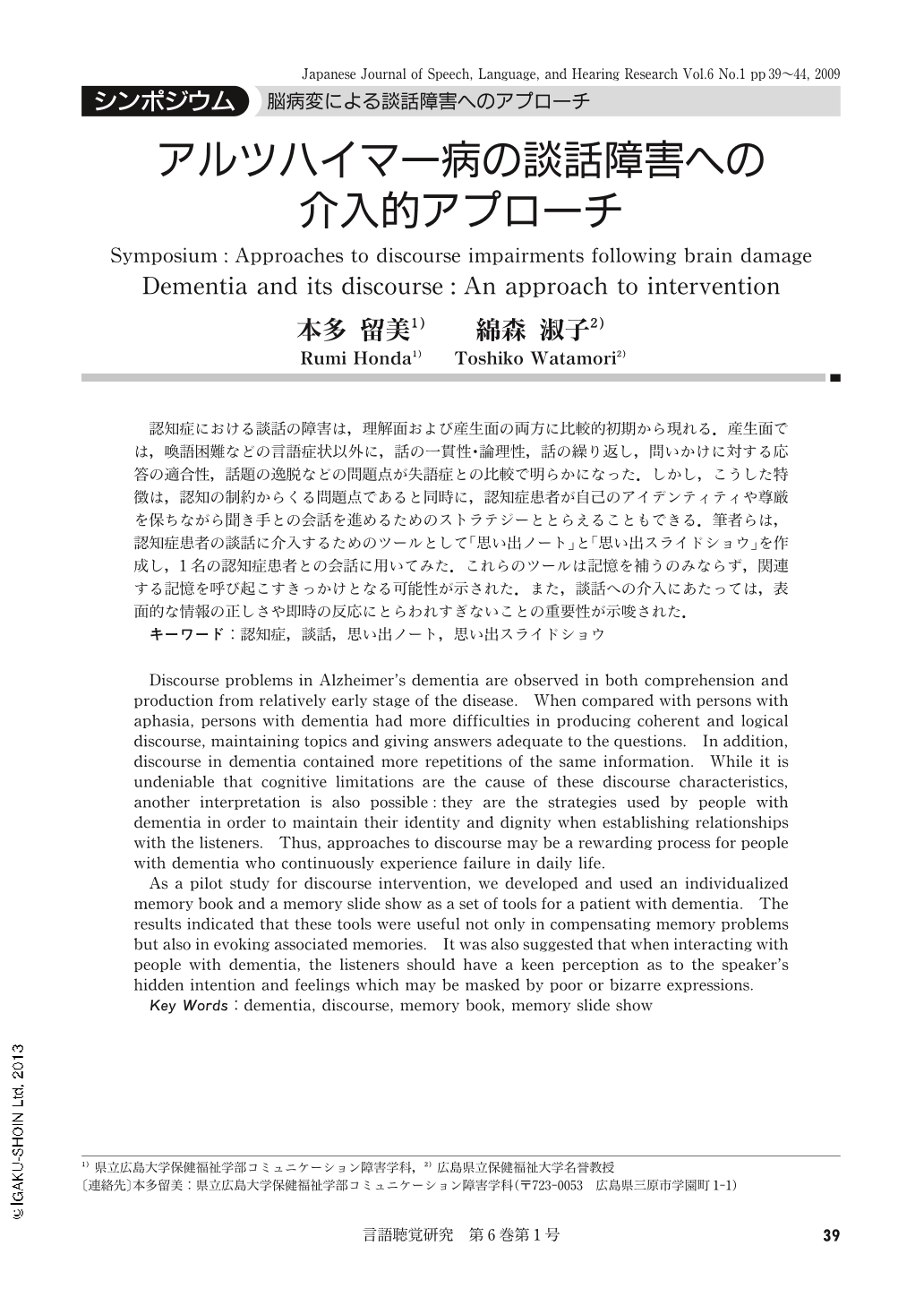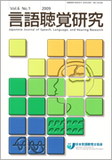Japanese
English
- 有料閲覧
- Abstract 文献概要
- 1ページ目 Look Inside
- 参考文献 Reference
- サイト内被引用 Cited by
認知症における談話の障害は,理解面および産生面の両方に比較的初期から現れる.産生面では,喚語困難などの言語症状以外に,話の一貫性・論理性,話の繰り返し,問いかけに対する応答の適合性,話題の逸脱などの問題点が失語症との比較で明らかになった.しかし,こうした特徴は,認知の制約からくる問題点であると同時に,認知症患者が自己のアイデンティティや尊厳を保ちながら聞き手との会話を進めるためのストラテジーととらえることもできる.筆者らは,認知症患者の談話に介入するためのツールとして「思い出ノート」と「思い出スライドショウ」を作成し,1名の認知症患者との会話に用いてみた.これらのツールは記憶を補うのみならず,関連する記憶を呼び起こすきっかけとなる可能性が示された.また,談話への介入にあたっては,表面的な情報の正しさや即時の反応にとらわれすぎないことの重要性が示唆された.
Discourse problems in Alzheimer's dementia are observed in both comprehension and production from relatively early stage of the disease. When compared with persons with aphasia, persons with dementia had more difficulties in producing coherent and logical discourse, maintaining topics and giving answers adequate to the questions. In addition, discourse in dementia contained more repetitions of the same information. While it is undeniable that cognitive limitations are the cause of these discourse characteristics, another interpretation is also possible:they are the strategies used by people with dementia in order to maintain their identity and dignity when establishing relationships with the listeners. Thus, approaches to discourse may be a rewarding process for people with dementia who continuously experience failure in daily life.
As a pilot study for discourse intervention, we developed and used an individualized memory book and a memory slide show as a set of tools for a patient with dementia. The results indicated that these tools were useful not only in compensating memory problems but also in evoking associated memories. It was also suggested that when interacting with people with dementia, the listeners should have a keen perception as to the speaker's hidden intention and feelings which may be masked by poor or bizarre expressions.

Copyright © 2009, Japanese Association of Speech-Language-Hearing Therapists. All rights reserved.


